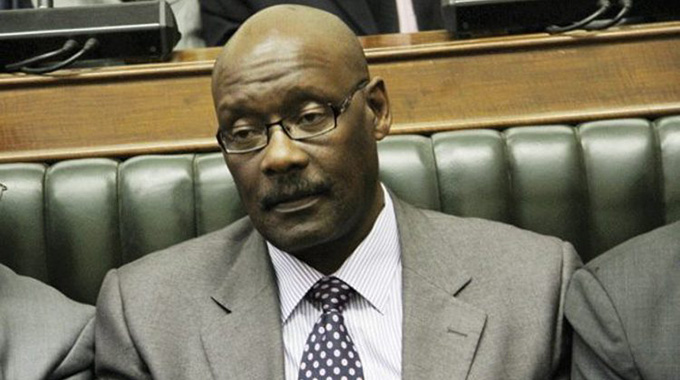Our life, our biodiversity still matters!

Sifelani Tsiko
Agric & Environment Editor
It’s now almost 48 years since the World Environment Day was first established by the United Nations General Assembly in 1972 to spread awareness, encourage humanity from across the world to take steps to protect the environment.
Every year, World Environment Day is observed on June 5.
It is a day celebrated to consistently raise awareness and environmental protection in every corner of the world.
This day has for years been held with pomp and fun-fare, including rigorous discussions touching on a number of critical environmental matters on pollution, climate change, biodiversity loss, deforestation, environmental laws and policies, global and national action plans and numerous.
However, due to the escalating coronavirus pandemic, this day will for the first time in decades be celebrated using online campaign platforms, taking away the shine of celebrations.
Digital celebrations are only accessible to a few people with access to internet in developing countries like Zimbabwe.
Musical shows, drama, dance and poetry that for years had been used to attract huge crowds to promote environmental campaigns will largely be absent this year, leaving everything to radio and television broadcasts.
According to UN, the theme for 2020 is biodiversity — a broad range of living things that exist on our planet which are increasingly coming under immense pressure from human interactions.
Biodiversity loss is now of major concern, not only in Zimbabwe, but in Africa and the world at large as well.
The World Environment Day should not lose its glitter and centre stage because of the raging Covid–19 pandemic, but should continue to be a major day to promote worldwide awareness and action for the environment.
For several decades, it had grown to be the largest global platform for environmental public outreach. It should remain so despite global shift on focus to the Covid–19 pandemic.
The UN Environment Programme says that with 1 million plant and animal species facing extinction, there has never been a more important time to focus on the issue of biodiversity.
“2020 is a year for urgency, ambition and action to address the crisis facing nature; it is also an opportunity to more fully incorporate nature-based solutions into global climate action,” Inger Andersen, executive director of the UNEP was quoted saying last December.
“Each year, World Environment Day is a powerful platform to accelerate, amplify and engage people, communities and governments around the world to take action on critical environmental challenges facing the planet.”
All nations should take practical steps to preserve and restore biodiversity as the UN Decade on Ecosystem Restoration (2021-2030) is about to commence.
Under this decade, nations intend to massively scale up the restoration of degraded and destroyed ecosystems to fight the climate crisis and enhance food security, water supply and biodiversity.
Despite the disruptive force of the Covid-19 pandemic, the Government, businesses, celebrities and citizens should continue to engage each other to find lasting solutions to pressing environmental issues.
Restoring our biodiversity means securing and safeguarding the foods we eat, the air we breathe, the water we drink and the climate that makes our planet habitable.
Zimbabwe, Africa and the world need to care for the environment to ensure our continued survival as a human race as well as other organisms in our ecosystem.
According to a 2019 Intergovernmental Science — Policy Platform on Biodiversity and Ecosystem Services (IPBES): “Current negative trends in biodiversity and ecosystems are projected to undermine progress towards 80 per cent of the assessed targets of the Sustainable Development Goals related to poverty, hunger, health, sustainable consumption and production, water, cities, climate, oceans and land.”
All this, highlights the importance of biodiversity on human development and its linkages with nature.
The IPBES report says Africa is experiencing a dramatic loss of biodiversity.
Experts estimate that by 2100, climate change alone could cause the loss of over half of African bird and mammal species, as well as trigger a 20 percent to 30 percent decline in lake productivity (the plant and animal life produced by a lake), and a significant loss of plant species.
The IPBES report also says there has been a 15 percent increase in global per capita consumption of materials since 1980 and a 300 percent increase in food crop production since 1970, reducing the habitat of some species and causing pollution through fertilisers.
Furthermore, 85 percent of wetlands present in 1700 had been lost by 2000 and 3,5 percent of domesticated breed of birds were extinct by 2016.
Africa which is home to a rich and diverse animal, plant, and marine biodiversity could lose this vital ecosystem service which drives the continent’s economy and acts as a buffer to climate change.
Ongoing threats to African biodiversity from natural habitat loss and degradation specially from agricultural expansion, direct overexploitation of wildlife and fishery species and the spread of certain non-native invasive species have compounded the situation.
This loss of biodiversity affects livelihoods, water supply, food security and lessens resilience to extreme events, particularly for people living in rural areas who are often the poorest.
If no action is taken to halt the loss of biodiversity in Zimbabwe and most other African countries, the negative impact will be felt intensely in the coming decades.
This message from an online environmental platform aptly sums up what needs to be done: “To care for ourselves we must care for nature. It’s time to wake up. To take notice. To raise our voices. It’s time to build back better for People and Planet. This World Environment Day, it’s Time for Nature.”









Comments